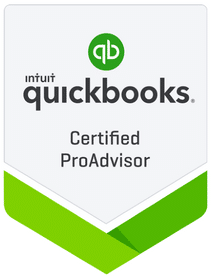- Patrick Roney
- (877) 503-8607
Follow Us :
Follow Us :
Proledge
January 10, 2025
Unfortunately, the pressure of your professional activities can often result in issues with the recordkeeping of your firm’s financial data. Are you active in a developing industry, and were you forced to invest significant sums in the development of your products and services? Is your budget stretched to the max, and you are looking to mitigate the impact of your financial framework? In such a case, not reconciling your past data could have a significant effect on your company’s market trajectory. Sure, falling behind on your data entry and transaction reconciling might not seem like a big deal, at least at first. However, it’s all fun and game until the IRS gets involved and starts to perform audits of your internal operations.
Are you behind on bookkeeping, and do you want to reconcile your transactional data with the one recorded by the banks you collaborate with? If so, you will have a choice to make. You either try to catch up on your firm’s legacy work, or you prioritize your current financial activities and leave the administration of past books for later. Both methods have their pros and cons, and their implementation is necessary to maintain the accuracy of your financial data. Nevertheless, you will have to make a choice and select whether you are interested in real-time correctness or historical data accuracy.

Catch up bookkeeping is a suitable approach if you are worried about the accuracy of past financial data and you want to address past entries, reconcile your accounts, and mitigate the potential impact of new IRS audits. Are you behind on bookkeeping? If so, the catch-up approach might be advantageous, as it will prioritize the accuracy of past financial reports and ensure your documentation is in order for down-the-road tax fillings. Our bookkeeping firm will analyze your past data entries, inspect your past financial statements, leverage QuickBooks to mass-reconcile past transactional data, and create a clean audit trail that will improve your firm’s transparency and potential for private investments.
Catch up bookkeeping is an excellent approach if you try to eliminate discrepancies in your past financial data and gain an accurate insight into your financial records, which your certified public accountant can later utilize to dictate the framework suitable for your company. That said, catch-up bookkeeping is time-consuming and will distract our attention from the administration of real-time data. Yes, it’s important, and it must be done. But, you will also need to pay attention to your current transactional data and how it can affect your operations.
Catch up bookkeeping is essential to ensure the accuracy of past financial books. However, it will all be for nothing if, by prioritizing previous entries, you are falling behind on present-day transactions. By focusing on your venture’s current financial data, our team will preserve the integrity of your current, day-to-day business tasks, streamline the utilization of internal resources, help your employees focus on their core competencies, and obtain the insights necessary to assess the growth potential of your organization’s income streams. That said, if you’re deprioritizing your legacy data, you might end up facing audit difficulties.
That’s the million-dollar question, isn’t it? Truth is, for a complete financial recordkeeping framework, regardless of the city in which you’re active, both your current economic data and your past logs must be appropriately cataloged. Do you prioritize your current bookkeeping data to the detriment of legacy records? If so, that will eventually lead to tax filing issues and attract the unwanted attention of the fiscal authorities. Since you are behind on bookkeeping, do you want to prioritize the reconciliation of past logs? That’s great. But the process will take a while, and there’s a real risk of falling behind on your present-day bookkeeping. Something that will put you back to square on.
Our personalized services will be optimized per your firm’s specifics, and we will utilize the conciliation features in QuickBooks, both for your past transactional date and for your present-day records. If you prioritize catch-up bookkeeping, we will perform an internal audit of your financial data, open up QuickBooks, select the accounts that need reconciliation, and fill in the statement’s ending balance and transaction time. Moreover, to make it easier, we will use batch import applications (like Excel) to migrate your financial data.
Instead of catch-up bookkeeping, are you more interested in reconciling your current-day financial statements? If so, we will choose a start date for the financial books, automate your bank feed imports, and perform a comprehensive backup of your financial data that could later be imported via CSV/TSV files. Ultimately, however, what you choose will depend on your company’s situation. Does the current-day transactional data pose a risk to your firm’s tax returns? If so, prioritizing its reconciliation might be worthwhile. Yet, if your past books risk affecting the accuracy of audits, you will need, at some point, to reconcile them.
You can contact us anytime if you have questions or encounter a problem with your bookkeeping program.
For one thing, our team will set up your QuickBooks account and select a platform suitable for your company’s objective requirements. Do you want to store your data internally, and is interoperability between devices not exactly your top priority? Then, QuickBooks desktop can be your choice. However, if you need cloud backups and want to access your financial data from anywhere, regardless of device, we will select QuickBooks Online. Either way, once we settle on the appropriate QuickBooks version for your firm’s specifics, our agency will analyze your chart of accounts and link your bank and credit accounts with QuickBooks so as to automatically reconcile inbound data.
We will categorize your transactions based on date, category, or amounts, inspect the transactional data downloaded from the bank feed, implement automated processes to categorize ongoing or recurrent transactions, and create custom invoices that can be personalized in accordance with your transactional preferences. Not least, we will utilize the automatic reconciliation tools offered by QuickBooks to match your past books with the ones of your bank statements, manage your account payables and receivables, and generate cash flow statements or balance sheets that can be later analyzed by your CPA and used to dictate the direction of the financial framework applicable for your company.

In QuickBooks reconciliation, the “day-one approach” is the process by which we can select a new date from which we handle the management of transactional data while leaving past books for down-the-road reconciliations. In other words, if you are massively behind on bookkeeping, and your past financial data is incomplete or impossible to match with bank statements in a cost-productive manner, the “day-one” approach can be utilized to start fresh and ensure your current-day transactional numbers are accurate and contribute positively to your tax statements.
The “day-one” method is helpful if you are planning to switch your preferred account solution, if you can’t catch up on past books in a practical manner or if your data is filled with inconsistencies. To put this method into practice, our company will open up QuickBooks and select a cutoff date for the recorded transactional data. Suppose you have two years of backlog that is proving challenging to reconcile. We could, for instance, set a cut-off date one month into the past and try only to reconcile your transactional data for the last 30 days. Yes, it’s a band-aid solution. However, it might be necessary.
Our team will adjust your account balances, develop a strategy to address the inconsistencies in past financial books and implement automated entry tools to streamline the input process for your transactional data. The “day-one” approach is useful if you are trying to concentrate on your recent books and prioritize the accuracy of your latest bookkeeping reports. That said, it is not something that can go on indefinitely. If the inaccuracies in your past books are not fixed in a reasonable time frame, your operations will become a prime target for external audits, which will likely result in fines.
Our company can monitor your latest financial statements, help you if you’re behind on bookkeeping, manage your account receivables or payables, and provide the documentation required for your accountant’s tasks. That said, checking your transactional backlog and reconciling your past data will be a lengthy endeavor, one that you must be prepared for. We are ready for the complexities of your bookkeeping requirements, and we possess the experience necessary to tackle any project, regardless of our client’s activity sectors. Do you want only the best help possible? If so, we are confident that we can provide what you’re looking for.


Fill out the form below to sign up to our Blog Newsletter and we’ll drop you a line when new articles come up.

There are lots of businesses that need to find efficient ways to keep track of their finances nowadays, and if you are a business owner, you have experienced this first-hand.

As we all know, automated means of running your business have started to become very popular recently due to all of the perks that it provides. This is not to

So you’re at that point in developing your small business where you’re looking into accounting solutions. If so, you might have started to wonder what’s the best bookkeeping software for

Welcome to bookkeeping 101, the place where we discover how to do bookkeeping effectively, accurately and easily. If you’ve started your small business already or if you’re on the verge

What exactly influences the long-term financial success of American SMEs? Ask 100 business entrepreneurs this question, and you will probably get 100 variations of the same answer. The quality of

Starting a business is not one of the most challenging parts of the business industry, the difficult part emerges when it comes to securing a long-lasting and successful organization. If
Bookkeepers.
Professional. Affordable.
ProLedge is a bookkeeping services firm.
Copyright © 2024 All rights reserved.